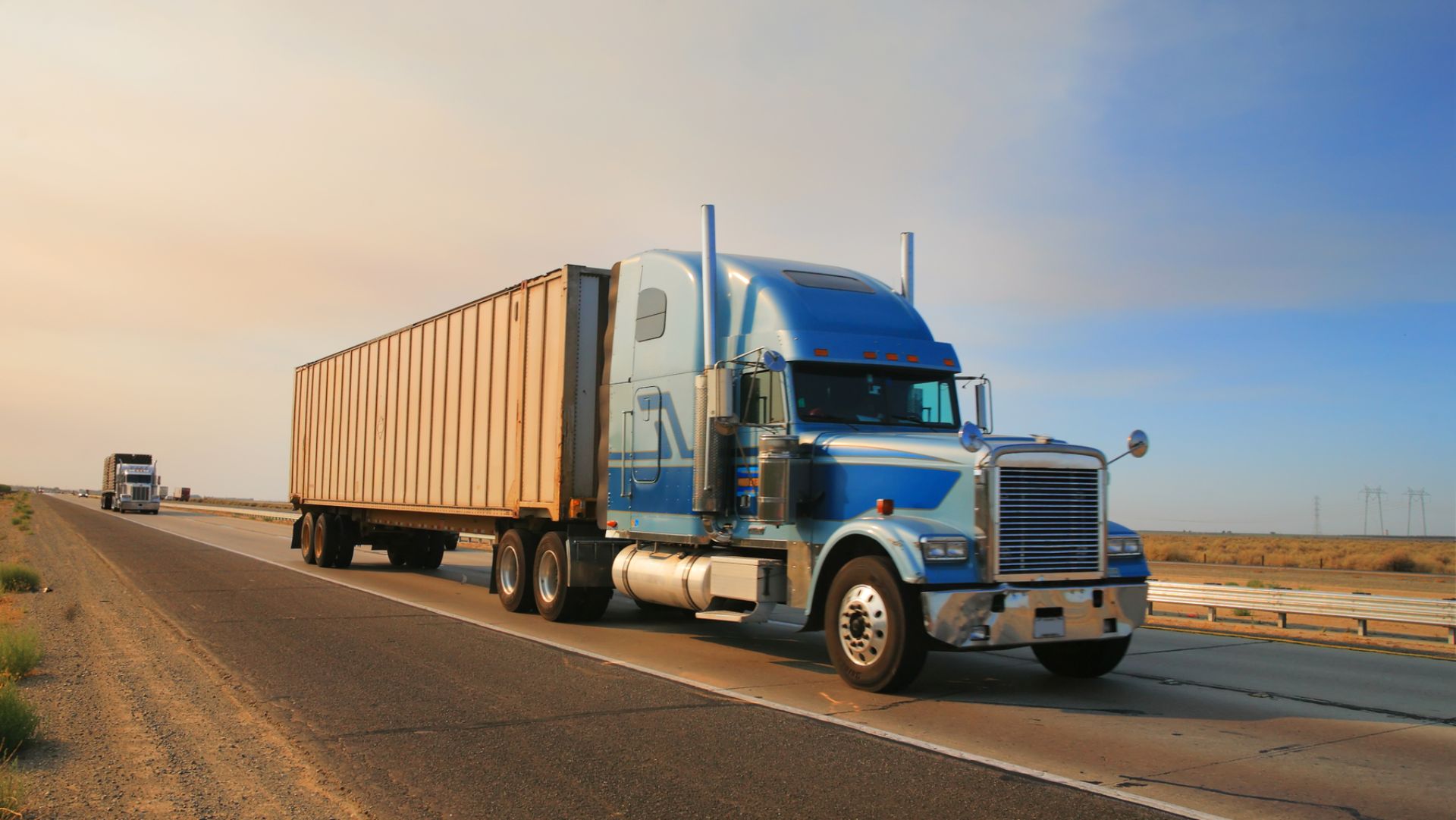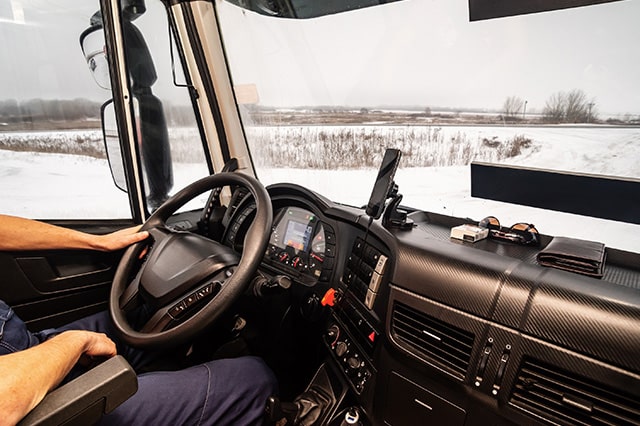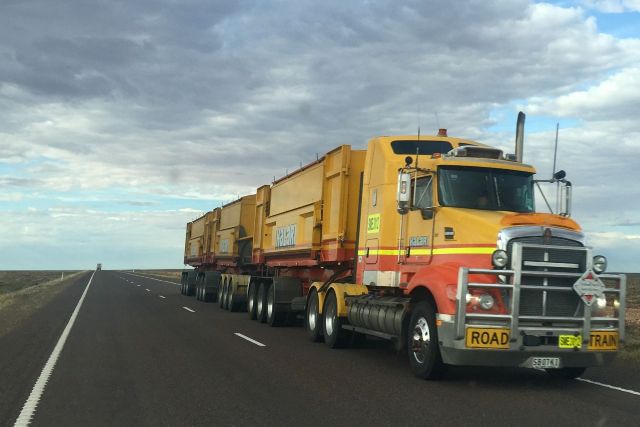
An Overview of Vermont Tractor-Trailer Laws






Understanding Vermont’s Tractor-Trailer Laws: A Guide for Injury Victims
Vermont tractor-trailer laws govern how large commercial vehicles, such as semi-trucks and trailers, are operated within the state. These laws outline important rules about vehicle weight limits, registration periods and fees, and where and how tractor-trailers can travel. For example, trailers and semi-trailers, excluding those used for farming, can be registered for a five-year period, with fees based on a multiple of the annual rate.
Understanding these laws is critical for those injured in accidents involving tractor-trailers. Tractor-trailer accidents often lead to complex legal issues. As injury victims seek compensation, knowledge of these regulations becomes crucial. The legal framework affects claims, and can impact liability and damages assessments.

Key aspects of Vermont truck laws include:
- Safety Regulations: These laws include requirements for driver licensing, vehicle maintenance, and load limits. They aim to minimize accidents and ensure the safe transport of goods.
- Commerce Clause Implications: Vermont’s regulations align with broader federal standards, ensuring interstate commerce remains seamless yet safely managed.
- Statute of Limitations: It’s essential to act promptly. Injury claims must adhere to specific timeframes, affecting the chances of successful outcomes.
At Sabbeth Law, PLLC, we are trusted advocates for truck accident victims in Vermont and New Hampshire. Our deep understanding of local and federal trucking laws allows us to navigate these complex cases. The experience and knowledge of a Vermont tractor-trailer accident lawyer help ensure that victims receive the guidance they need in the aftermath of such accidents.
Key Elements of Vermont’s Tractor-Trailer Laws
In Vermont, various laws govern the operation of tractor-trailers. These regulations aim to ensure safety on the roads while accommodating commercial needs. They address aspects such as vehicle dimensions, weight limits, and driver qualifications.
Maximum Legal Dimensions
Vermont’s tractor-trailer dimensions involve specific limits on height, width, and length. The state enforces a maximum height of 13.6 feet for vehicles and a width of not more than 8.5 feet. Single-unit trucks and combination vehicles are subject to distinct length restrictions; tractor-trailers can extend up to 75 feet. Violating these rules can lead to citations or increased liability after accidents.
The Vermont Agency of Transportation provides regulations that detail these specifications and their enforcement. More information can be found here.
Weight Limits and Axle Restrictions
Under Vermont law, the gross vehicle weight for tractor-trailers is capped based on the number of axles and combination type. The state’s modifications of the Federal Bridge Formula accommodate local needs while preserving road integrity. Enforcement mechanisms include weigh stations and mobile scales to ensure compliance. The gross weight typically evolves around 80,000 pounds, although specific configurations might have different limits. These regulations help balance the weight of infrastructure and promote safety.
Contact UsOversize/Overweight Permits
Oversized and overweight vehicles must obtain special permits to operate legally on Vermont roads. The application process involves specifying load dimensions, weights, and routes.
Special safety measures, such as warning signage and pilot vehicles, can be mandatory. This helps protect all road users and ensures these loads are managed responsibly. Permit conditions are thoroughly outlined in Vermont’s transportation regulations, ensuring that companies adhere to state laws.
CDL and Endorsements for Vermont Drivers
Operating a tractor-trailer in Vermont requires a Commercial Driver’s License (CDL). Depending on the cargo, additional endorsements might be needed (for example, hazardous materials). CDL holders must comply with Vermont’s driving laws, as licensing violations can influence preparedness and fault in accidents. CDL requirements are detailed in Vermont’s motor vehicle statutes.
Required Vehicle Inspections and Maintenance
Routine inspections and maintenance are mandated to prevent mechanical failures. Regular checks play a crucial role in identifying potential issues before they cause accidents. Legal consequences for neglecting required maintenance can include fines and increased liability in accidents. Building a schedule around these inspections is vital for tractor-trailer operators to maintain compliance and safe operation.
Hours of Service and Fatigue Prevention
The federal Hours of Service (HOS) rules, enforced in Vermont, limit driving hours to prevent fatigue among commercial drivers. They stipulate mandatory rest periods to ensure sufficient rest to operate vehicles safely.
Drivers are typically allowed a maximum of 11 driving hours within a 14-hour workday, followed by a rest period. Violations can lead to driver fatigue, citations, and potentially preventable accidents. NHTSA’s traffic data offers insights into how these rules relate to safety outcomes in Vermont.

Common Violations of Vermont Tractor-Trailer Laws
Tractor-trailers are vital in Vermont’s economy, yet they also present unique risks on roads. Key issues can arise, including the operation of overweight vehicles without permits, violation of route restrictions, and negligence in vehicle maintenance or driver behavior. These factors significantly contribute to accidents and legal complexities.
Overweight Vehicles Without Proper Permits
Operating an overweight vehicle poses serious safety hazards and legal issues. In Vermont, vehicles exceeding weight limits require special permits. Without these, operators risk fines and legal challenges. Overweight vehicles can cause road damage and increase the likelihood of mechanical failures, such as brake issues, leading to accidents.
Enforcement of regulations is strict, and frequent roadside inspections are conducted. Violations impact accident claims, and insurance might deny coverage due to regulatory non-compliance. It’s crucial for operators to obtain the necessary permits to mitigate risks and adhere to regulations to ensure safety. Ignoring this requirement not only endangers lives but also exposes drivers and companies to significant legal liabilities.
Noncompliance With Route or Equipment Restrictions
Drivers often ignore route restrictions, bridge clearances, or seasonal road limitations. These regulations are crucial in preventing accidents, particularly in Vermont’s narrow and winding roads. When drivers fail to comply, it can lead to collisions and substantial damage. For instance, logging trucks must strictly adhere to specific routes due to their size and weight.
Ignoring these restrictions increases the risk of catastrophic accidents. Common causes of tractor-trailer accidents include negligence, which can result in severe penalties and liability claims. It’s essential to understand that these restrictions not only protect the infrastructure but also ensure public safety. Adhering to them is non-negotiable for responsible driving.
Contact UsNegligent Driving and Improper Vehicle Maintenance
Negligence in driving behaviors like distracted driving, speeding, and poor vehicle maintenance contribute to accidents. Common maintenance issues include worn-out brakes, tire failures, and faulty lights. These problems often go unnoticed until a post-accident investigation reveals them.
Speed limits and strict maintenance schedules are vital in Vermont’s regulations. Noncompliance jeopardizes safety and results in severe penalties and potential lawsuits.

Legal Rights After a Tractor-Trailer Crash in Vermont
Understanding one’s legal rights is crucial for victims of truck accidents in Vermont seeking compensation. Victims may pursue claims for damages, and truck drivers injured on the job may be entitled to workers’ compensation benefits.
Determining Liability in a Tractor Trailer Accident
Determining liability in a tractor-trailer accident is essential for victims seeking compensation. Vermont law holds truck drivers and trucking companies responsible when negligence is involved.
Key factors include driver fatigue, improper vehicle maintenance, and violation of safety regulations. Victims may file claims against multiple parties, such as the truck driver, trucking company, or even vehicle manufacturers. Legal representation can help navigate liability issues and ensure responsible parties are held accountable for damages.
Workers’ Compensation for Truck Drivers
In Vermont, truck drivers injured while performing their official duties may be eligible for workers’ compensation. These benefits cover medical expenses, lost wages, and disability payments. Claims must be filed promptly to avoid disqualification. Employers are mandated to provide workers’ compensation coverage, offering financial protection to injured drivers.
Why Choose Sabbeth Law, PLLC
When considering who to trust with tough legal matters, choosing a team with proven experience and a commitment to their clients is vital. At Sabbeth Law, PLLC, we focus on two critical aspects essential for success in truck accident cases: a deep understanding of Vermont’s trucking laws and a robust advocacy approach for accident victims.
We Know Vermont’s Trucking Laws
We are experienced in navigating the complex landscape of truck accident claims in both Vermont and New Hampshire. Our firm’s knowledge of local and federal trucking regulations is unmatched, allowing us to tackle even the most challenging cases effectively.
Our team is thoroughly versed in the Federal Motor Carrier Safety Regulations and familiar with the specific nuances that differentiate truck accidents from common vehicle crashes. This extensive understanding helps us approach each case with precision, ensuring our clients are well represented against the vast resources often available to trucking companies.
Aggressive Advocacy for Truck Accident Victims
Our dedication to our clients is unwavering. We conduct meticulous investigations into crashes, leveraging black box data and collaborating with leading professionals to build strong legal claims. Our skilled approach ensures no stone is left unturned, helping us paint a comprehensive picture of each accident.
Connect with us directly via phone or email for prompt support. Our office is located in Vermont, providing easy access to local resources and a deep understanding of the regional legal landscape.
Contact UsPractice Areas
Client Testimonials
LUKE PARMENTER“Immediately after my son’s injury at work, he was treated poorly. Over the course of the next few days it became even worse, so I called Mike and he and Crystal have been absolute lifesavers during the process. Mike is not your typical stuffed suit lawyer who only cares about the bottom line he genuinely cares about his clients and his assistant Crystal is beyond amazing! My thanks to you both!”
Client Testimonials
“Immediately after my son’s injury at work, he was treated poorly. Over the course of the next few days it became even worse, so I called Mike and he and Crystal have been absolute lifesavers during the process. Mike is not your typical stuffed suit lawyer who only cares about the bottom line he genuinely cares about his clients and his assistant Crystal is beyond amazing! My thanks to you both!”
LUKE PARMENTER
“I could never ask for a better attorney, to fight for me, to believe in me, and have faith in me, than what I found in Mike Sabbeth, He doesn’t treat you like a client, he treats you as if you are one of his own family members, He will fight for you, with all he has, and is ALWAYS up front and honest with you about everything!”
SANDRA DRUGE
